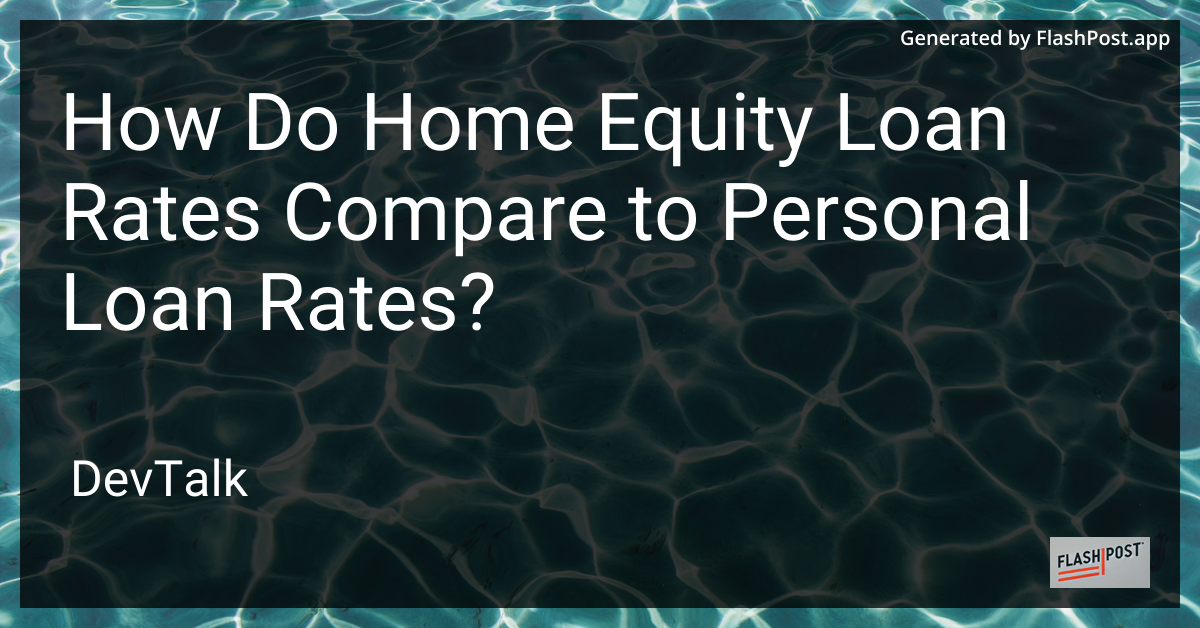How Do Home Equity Loan Rates Compare to Personal Loan Rates?

How Do Home Equity Loan Rates Compare to Personal Loan Rates?
Understanding the nuances between home equity loan rates and personal loan rates is crucial for financial planning.
Both provide access to cash for various needs, such as home renovations, debt consolidation, or unexpected expenses. In this guide, we explore how these two loan types stack up against each other and what factors influence their rates.
What is a Home Equity Loan?
A home equity loan allows homeowners to borrow against the equity in their home. This type of loan is secured by the property itself, often enabling borrowers to enjoy lower interest rates compared to unsecured options. Typically, the terms are fixed, providing consistent monthly payments over the loan's duration.
What is a Personal Loan?
Personal loans can be either unsecured or secured. Unsecured personal loans do not require collateral and are often based on creditworthiness. On the other hand, secured personal loans require assets as security, which can result in more favorable terms. Personal loans offer flexibility in usage, from major purchases to travel, making them appealing for various personal financing needs.
Comparing Loan Rates
Interest Rates
-
Home Equity Loans: Generally, these loans provide lower interest rates compared to personal loans due to the collateral involved. Rates can vary based on factors such as your credit score, loan amount, and the property’s market value.
-
Personal Loans: With no collateral backing them, unsecured personal loans tend to have higher interest rates. However, for those with solid credit profiles, rates can be competitive.
Term Length and Payment Flexibility
-
Home Equity Loans: Terms can span from 5 to 30 years. The longer-term lengths often mean lower monthly payments but more interest paid over time.
-
Personal Loans: Typically have shorter terms, ranging from 2 to 7 years. This can lead to higher monthly payments but less interest paid overall.
Factors Affecting Rates
-
Credit Score: A higher credit score can secure better rates for both home equity and personal loans.
-
Loan Amount: Larger amounts might attract lower rates due to the lender’s increased potential gains.
-
Market Conditions: Economic factors like inflation and central bank interest rates can influence loan rates.
Additional Resources
-
To understand more about long-term installment loans, you can refer to installment loan 2025.
-
For exploring short-term financing solutions suitable for different employment scenarios, check out employee loan options 2025.
Choosing between a home equity loan and a personal loan depends on your personal situation and financial goals. Consider your cash flow, the amount of funding needed, and the potential risk before deciding. Always compare quotes from various lenders to ensure you're securing the best possible terms for your financial needs.
This article is crafted to be SEO-friendly by effectively utilizing relevant keywords while providing substantial and useful information for readers seeking insights on loan rate comparisons.